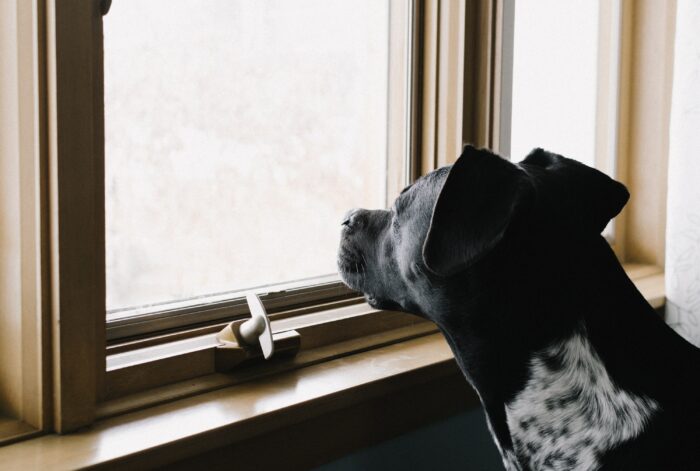In episode 36 of the Paws & Reward Podcast, join me as I talk with Kiki Yablon about how to stop your dog from barking when it matters the most. So many pet parents reach out to trainers and behavior consultants in hopes to reduce or even stop their dog’s barking behavior. We totally get it, barking can be startling to our nervous systems and in our culture, it’s not a “socially acceptable” behavior, even though, well, they are dogs?! In this conversation, we tackle the reasons dogs bark and how to help them find other ways to communicate with us. Watch our conversation on my YouTube Channel.
Kiki Yablon is a dog trainer who lives in Chicago. In addition to helping pet owners through her business, Kiki Yablon Dog Training, she teaches other animal trainers as a Karen Pryor Academy faculty member works and as a co-instructor for Dr. Susan Friedman’s Living and Learning With Animals course. She is also pursuing a master’s degree in applied behavioral sciences at the University of Kansas.
What are some common reasons for barking?
- Gain access to something they want (toy, outside, a person, another dog)
- Making something go away
- Alerting to something in the environment
- Expression of joy or excitement (play)
- Expression of stress

What are some of your favorite management strategies to stop your dog from barking?
Management strategies can be very individualistic, so choose what you feel would be best to stop your dog from barking. Get creative!
- White noise machines near the front door or wherever the distracting sound originates
- Increased mental or physical enrichment during the day
- Making sure your dog is well rested
- Restricting access to the window or area where the barking most occurs

“Thank You for Barking” Protocol – Steps to Stop Your Dog from Barking
During the episode, Kiki talks about the protocol she uses to stop your dog from barking. She cleverly titled it “Thank you for barking” so we as pet parents can reframe our thinking. Instead of getting upset and having an expectation that the dog should not bark at all (highly unrealistic), we’re saying “thank you” to the dog (in a cheerful voice) for letting us know they have alerted to something in the environment, and we can take it from there.
For the full protocol and detailed instructions:
Does rewarding your dog while barking reinforce the barking?
It depends on the reason your dog is barking. Is your dog barking for your attention or to make a scary thing go away? If your dog is worried, anxious, or scared, then food reinforcement will only help them feel more comfortable and confident. As a result, the barking will decrease. If your dog is barking for your attention, then food reinforcement may increase the barking behavior. It’s important to assess why the barking is happening, but either way, the protocol will help stop your dog from barking an excessive amount.
What are some of the challenges to be aware of when trying to stop your dog from barking? What are realistic expectations for this protocol?
All barking happens for a reason. If that reason isn’t addressed, the barking will likely still happen. Make sure the basic needs of your dog are met first. Is your dog getting enough enrichment during the day? Are they getting the attention they need? Are they getting enough rest to balance out the physical and mental stimulation?
When starting the protocol to stop your dog from barking, expect mistakes to be made and progress to be slow at first. As we like to say on this podcast, progress isn’t linear. Keep going!
More Resources:
- Canine Enrichment and Mental Stimulation Toys
- Setting Up Your Dog Training Sessions Up for Success
- Training Rewards: A Guide Beyond Treats
- Teaching Your Dog a Behavior on Verbal Cue
Kiki Yablon Resources:
- How To Get Your Dog to Stop Barking – By Thanking Him for Barking
- Thanks for Barking by Kiki Yablon
- Article that Kiki wrote on the ABCs of Barking

